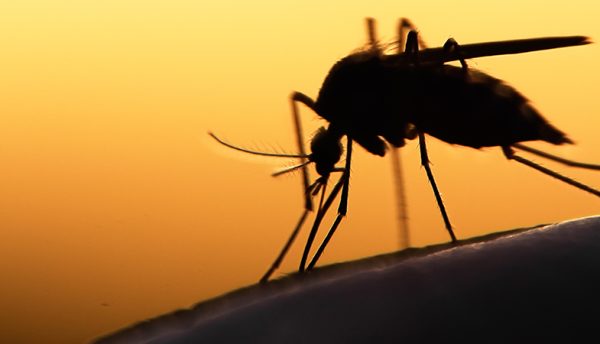The latest figures from the World Health Organisation (WHO) state that the African region accounts for 95% of global malaria cases and 96% of deaths. Sandra Incardona, Head of the Technical Unit, and Julie Niemczura, Deputy Director at MCD Global Health explore how Artificial Intelligence (AI) is aiding in the fight against malaria in Africa.
AI in healthcare
Artificial Intelligence (AI) is increasingly applied in many domains, whether business, research or communication and is already changing the way we live our lives.
As a result, investors and governments are increasingly recognising the potential of AI to transform healthcare delivery, from improving patient outcomes and personalising treatment plans to increasing access to healthcare services and even extending life.
These discussions are happening at a time when the fight against malaria is facing a critical juncture. Progress against malaria had stalled even before the COVID-19 pandemic, with the World Health Organisation reporting that malaria cases increased for the second consecutive year to 247 million in 2021. Several biological threats have also emerged – including growing resistance to lifesaving malaria control tools and an increase in extreme weather events due to climate change – putting existing and future progress at risk. Meanwhile, the funding gap for addressing malaria continues to widen, with estimates suggesting annual investments will need to triple by 2030 – to US$10.3 billion per year – to meet global targets.
In this context, it is imperative that the power of AI is effectively leveraged in the fight against malaria.
How AI is being used in the fight against malaria in Africa
The good news is that the global malaria community has already been trialling and utilising AI to detect and treat malaria in affected regions and drive innovation to accelerate progress.
Early detection and diagnosis of malaria is essential to effectively treating the disease. Researchers and companies, such as Intellectual Ventures (U.S.), or Noul Inc. (South Korea), are using algorithms to analyse microscopic images of blood samples to detect malaria parasites in red blood cells. These algorithms have the potential to detect malaria and identify various species and could serve as a reference method in hospitals, for example, supporting more accurate malaria diagnosis.
AI is also being used for predictive analysis and surveillance, with scientists using AI to analyse environmental and meteorological data to predict areas where malaria outbreaks are likely to occur and guide more effective targeting of prevention and control measures to these high-risk regions. The Forecasting Healthy Futures initiative, for example, is using AI to identify proactive solutions that anticipate and mitigate the effects of a warming planet on human health in the most vulnerable communities.
While delivering existing tools for malaria control is critical to saving lives from malaria, new and improved tools are needed to address emerging threats such as antimalarial resistance. AI simulations are being used to accelerate the process of discovering new antimalarial drugs by analysing interactions between potential drug compounds and malaria parasites, helping researchers identify promising drugs for further testing.
Finally, malaria services are a core part of the wider health system in malaria-affected countries, and AI can also be applied to optimise healthcare delivery. AI is, for example, now assisting in the optimisation of healthcare supply chains, ensuring that essential antimalarial drugs, diagnostic tools and insecticides are available in the right quantities and locations.
How ScanForm is helping to improve malaria control
ScanForm is an AI-powered technology developed by QED that allows health professionals and malaria researchers to capture digital data from handwritten forms, simply by taking a photo with a standard smartphone. Once the photo is uploaded, AI extracts the information to automatically calculate custom summary statistics and visual analytics within seconds.
Since 2018, ScanForm has grown exponentially, with over 20 million patient records processed in sub-Saharan Africa, including national-scale deployment in Malawi for HIV testing. The real-time data that ScanForm provides enables government and healthcare officials to rapidly identify potential malaria outbreaks and implement strategies to prevent the spread of the disease.
The approach also has the potential to save health systems both money and time by eliminating the need for manual, error-prone data entry, offering a faster and more affordable solution. In 2022, a Benin study led by MCD Global Health found that ScanForm allowed researchers to collect 30% more malaria data during antenatal care (ANC) visits than tablet-based data entry.
In Kenya, malaria testing and treatment indicators captured using ScanForm were first collected from ANC registers in 2018. This has allowed the Ministry of Health to compile data on malaria prevalence amongst pregnant mothers to predict the prevalence of malaria in the general population. The Ministry of Health has since applied the technology for other activities, such as clinical trials, malaria surveillance projects and performance monitoring of vector control activities.
Scaling up AI solutions to end malaria
Today, 95% of the global malaria burden is concentrated in sub-Saharan Africa – a region where health systems are vulnerable and resources are stretched. In the face of growing threats and funding shortfalls, AI can be a powerful solution to deliver more efficient, targeted, and impactful interventions to those who need them most.
Click below to share this article

